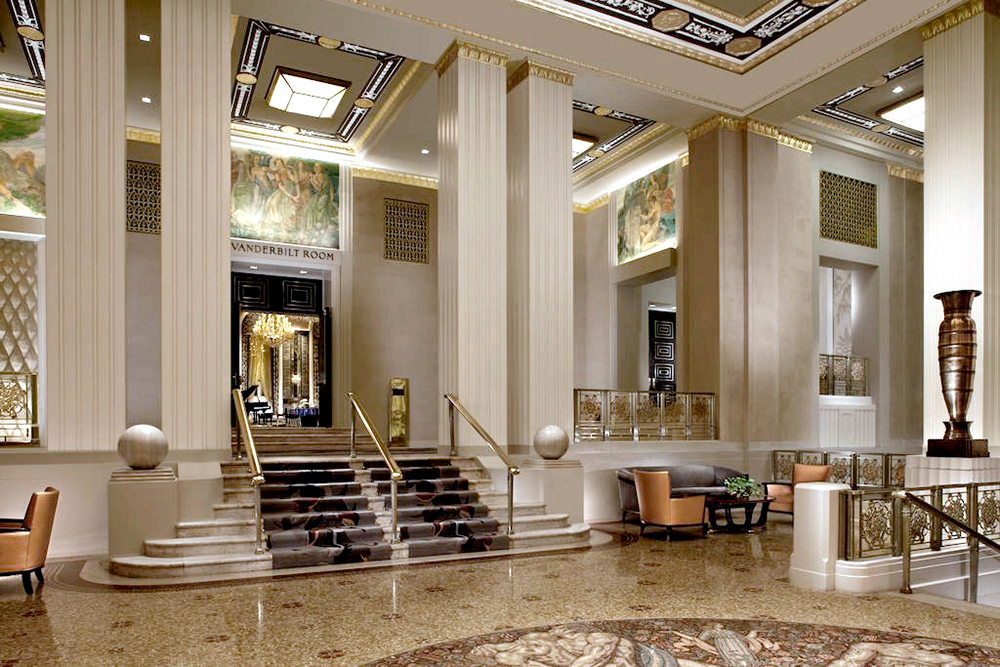|
Getting your Trinity Audio player ready...
|
By: Meyer Wolfsheim
The reopening of the historic Waldorf Astoria in New York City has been delayed once more, with the latest timeline now set for spring 2025. The delay marks another chapter in the saga of the iconic hotel, which has been undergoing renovations for over eight years. The delay, as reported by the New York Post, highlights the priorities of its current owner, Dajia Insurance Group—a Chinese firm that took over after the collapse of the previous owner, Anbang Insurance Group. Critics argue that the focus has been more on selling luxury condominiums than on reviving the hotel’s legacy.
The storied property, renowned for its glamorous history and legendary guests like Frank Sinatra, Cole Porter, and Marilyn Monroe, closed its doors in February 2017 for what was initially planned as a brief renovation. Since then, the relaunch date has been pushed back several times—from the original 2020 timeline, through 2021, 2022, and 2023. Now, Hilton, which manages the property, quietly announced that the reopening is delayed again, with the spring 2025 date being described only as the “expected” timeframe.
The renovation has been extensive, as the NY Post notes, involving a complete overhaul of the hotel’s interiors and a shift in its core offerings. While the original Waldorf featured 1,400 rooms, the revamped hotel will include just 375 rooms and suites—each considerably larger than before. In addition, there will be 375 high-end condominium residences, with prices ranging from $1.8 million to $20 million.
Dajia Insurance Group, which acquired control of the Waldorf three years ago, has drawn criticism for what some perceive as an emphasis on catering to affluent investors rather than restoring the hotel’s rich history and appeal. As the New York Post highlights, Dajia’s approach stands in contrast to landmark restoration projects like that of the Plaza Hotel, which managed a similar redesign in just three years, or the construction of the One Vanderbilt skyscraper, which took under four years.
Today, the Waldorf’s ground and second floors remain largely unfinished, visible as raw space through the building’s windows and open doors. Yet, a polished sales office on Park Avenue showcases the gleaming luxury condos on offer, complete with Cole Porter’s piano on display. Meanwhile, nearby businesses are feeling the impact of the prolonged construction. An employee at Fresh & Co., a neighboring eatery, lamented to the NY Post, “It’s the great black hole of Lexington Avenue. People don’t like walking here from uptown.”
The delays have not been without their complications. The collapse of Anbang, coupled with the departure of the Waldorf’s U.S. project manager earlier this year, contributed to the setbacks, adding to the challenges brought on by the pandemic. Despite these hurdles, Hilton launched a media push earlier this year to reassure the public that the hotel would eventually reopen. This included announcing Gramercy Tavern chef Michael Anthony as “culinary consultant in charge” of a planned two-level American brasserie on the ground floor and mezzanine, alongside positive remarks from key figures like Luigi Romaniello, the hotel’s managing director.
However, some signs of the old Waldorf Astoria remain stubbornly present. As the New York Post points out, an Oscar’s restaurant sign still hangs at the corner of Lexington Avenue and East 50th Street—serving as a reminder of the hotel’s former glory even as the promised new era remains just out of reach.





